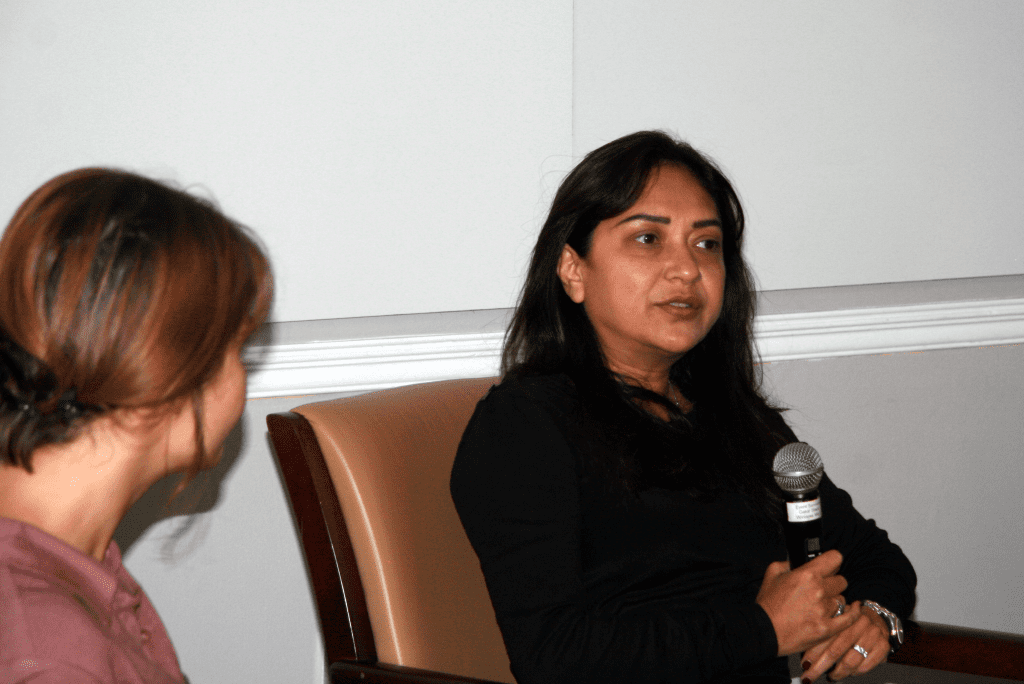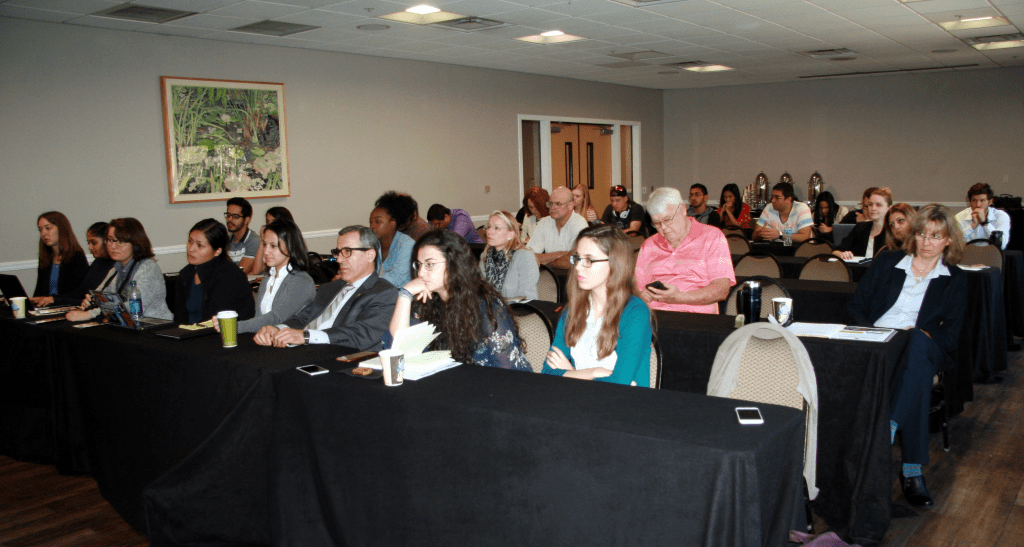Kurdish Aspirations, Geopolitical Realities

On November 16, the Kurdish Political Studies Program (KPSP) sponsored an event about contemporary Kurdish politics in the Middle East with an audience of more than 30 people. Güneş Murat Tezcür, Ph.D., opened up the event and invited Kerstin Hamann, Ph.D., Chair of the Department of Political Science, to present the Dr. Najmaldin Karim Fellowship to Maggie Morgan, a political science major. Maggie’s fellowship project will be supervised by Konstantin Ash, Ph.D., in spring 2018.
After this introduction, Tutku Ayhan and Peyman Asadzade, two doctoral studies in the Security Studies Program, have a conversation with Amberin Zaman, a seasoned journalist with more than 20years of reporting about the Middle Eastern, Kurdish, Turkish and Armenian politics for the Economist, the Washington Post, the Daily Telegraph, the Los Angeles Times and Al-Monitor. Zaman, who recently visited Kurdish controlled regions in both Iraq and Syria, shared her view of the dynamics and outcome of the Kurdish independence referendum in September 2017. She argued that the fall of the city of Kirkuk to the Iraqi forces was primarily due to the lack of Kurdish resistance and internal divisions. She also pointed out that the Kurdish diplomacy failed to mobilize any support from the United States and regional countries for the referendum. When asked about why U.S. did not support the Kurdish initiative, Zaman explained that the U.S. continues to espouse the “one Iraq policy” to prevent Baghdad from falling under Tehran’s control.

Zaman also offered insights about the challenges and political vision of the Kurdish administration in Syria. She argued that it is very unlikely that Turkey will withdraw from Syria anytime soon and made analogies with historical cases such as the Turkish intervention of Cyprus in the 1970s. She also suggested that if the United States leaves Syria, the Kurdish forces will face a difficult situation given the strong Turkish antagonism. She also added that the presence of a large Arab population in northern part of the Syria would result in clashes as the Arabs are not necessarily in favor of an autonomous Kurdish state. At the same time, she pointed out that while the Kurdish movements have recently faced difficulties, the Kurdish struggle is most likely to continue as Kurdish political aspirations remain unaddressed. Finally, Zaman talked about her observations about the atrocities committed by the self-styled Islamic State against the Yazidis and their continuing plight. A large number of Yazidi women and children who were kidnapped by the Islamic State remains in servitude as public attention shifts to other issues. The event was concluded with a lively question and answer session.
The KPSP thanks UCF Global Perspectives and Prince Mohammad Bin Fahd Program for their collaboration and valuable support in organizing this event.
